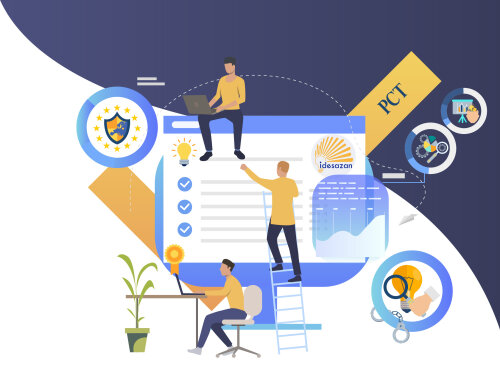Best Fintech Lawyers in Iran
Share your needs with us, get contacted by law firms.
Free. Takes 2 min.
Or refine your search by selecting a city:
List of the best lawyers in Iran
About Fintech Law in Iran:
Fintech, short for financial technology, is a rapidly growing industry in Iran that combines finance and technology to create innovative financial solutions. The Fintech sector in Iran is regulated by specific laws and regulations to ensure the protection of consumers and the stability of the financial system.
Why You May Need a Lawyer:
There are several situations where you may need legal advice in the field of Fintech in Iran, such as setting up a Fintech company, navigating regulatory requirements, drafting contracts, resolving disputes, or seeking guidance on compliance with local laws.
Local Laws Overview:
Key aspects of local laws relevant to Fintech in Iran include regulations on electronic banking, payment services, crowdfunding, cryptocurrencies, data privacy, and consumer protection. Understanding these laws is essential for Fintech companies to operate legally and ethically in Iran.
Frequently Asked Questions:
1. What are the regulatory requirements for Fintech companies in Iran?
Fintech companies in Iran must comply with laws regulating electronic banking, payment services, data protection, and consumer rights. Consulting with a lawyer can help ensure compliance with these regulations.
2. Are cryptocurrencies legal in Iran?
While the government has shown interest in regulating cryptocurrencies, the legal status of cryptocurrencies in Iran is currently unclear. It is advisable to seek legal advice before engaging in cryptocurrency transactions in Iran.
3. How can I protect my Fintech company's intellectual property in Iran?
Registering trademarks and patents can help protect your Fintech company's intellectual property in Iran. A lawyer can assist you in navigating the registration process and enforcing your intellectual property rights.
4. What are the risks of non-compliance with Fintech laws in Iran?
Non-compliance with Fintech laws in Iran can result in legal penalties, fines, reputational damage, and even the suspension of business operations. It is crucial to seek legal advice to avoid these risks.
5. Can foreign investors operate Fintech businesses in Iran?
Foreign investors can operate Fintech businesses in Iran under certain conditions and restrictions. Consulting with a lawyer can help foreign investors navigate the legal requirements for investing in the Fintech sector in Iran.
6. How can a lawyer help with Fintech contract negotiations?
A lawyer can review and draft Fintech contracts, negotiate terms and conditions, and ensure that contracts comply with Iranian laws and regulations. Legal advice can help protect your interests in contract negotiations.
7. What are the data privacy requirements for Fintech companies in Iran?
Fintech companies in Iran must comply with data protection laws and safeguard customer information. Consulting with a lawyer can help ensure that your Fintech company meets data privacy requirements and avoids legal issues related to data breaches.
8. Are peer-to-peer lending platforms legal in Iran?
Peer-to-peer lending platforms are not currently regulated in Iran. It is essential to seek legal advice before setting up or using peer-to-peer lending platforms to understand the legal implications and risks involved.
9. How can a lawyer help with Fintech compliance in Iran?
A lawyer can provide guidance on navigating Fintech regulations, implementing compliance programs, conducting risk assessments, and responding to regulatory inquiries. Legal advice can help Fintech companies stay compliant with Iranian laws.
10. What is the role of the Central Bank of Iran in regulating Fintech?
The Central Bank of Iran plays a significant role in regulating Fintech activities, issuing licenses, and monitoring compliance with financial regulations. Working with a lawyer can help Fintech companies understand and comply with the Central Bank's regulations.
Additional Resources:
For more information on Fintech regulations in Iran, you can visit the Central Bank of Iran's website or contact the Iranian Fintech Association. These resources can provide valuable insights and guidance on legal matters related to Fintech in Iran.
Next Steps:
If you require legal assistance in the field of Fintech in Iran, consider reaching out to a knowledgeable lawyer who specializes in Fintech law. A lawyer can provide tailored advice and support to help you navigate the complex legal landscape of Fintech in Iran.
Lawzana helps you find the best lawyers and law firms in Iran through a curated and pre-screened list of qualified legal professionals. Our platform offers rankings and detailed profiles of attorneys and law firms, allowing you to compare based on practice areas, including Fintech, experience, and client feedback.
Each profile includes a description of the firm's areas of practice, client reviews, team members and partners, year of establishment, spoken languages, office locations, contact information, social media presence, and any published articles or resources. Most firms on our platform speak English and are experienced in both local and international legal matters.
Get a quote from top-rated law firms in Iran — quickly, securely, and without unnecessary hassle.
Disclaimer:
The information provided on this page is for general informational purposes only and does not constitute legal advice. While we strive to ensure the accuracy and relevance of the content, legal information may change over time, and interpretations of the law can vary. You should always consult with a qualified legal professional for advice specific to your situation.
We disclaim all liability for actions taken or not taken based on the content of this page. If you believe any information is incorrect or outdated, please contact us, and we will review and update it where appropriate.
Browse fintech law firms by city in Iran
Refine your search by selecting a city.









